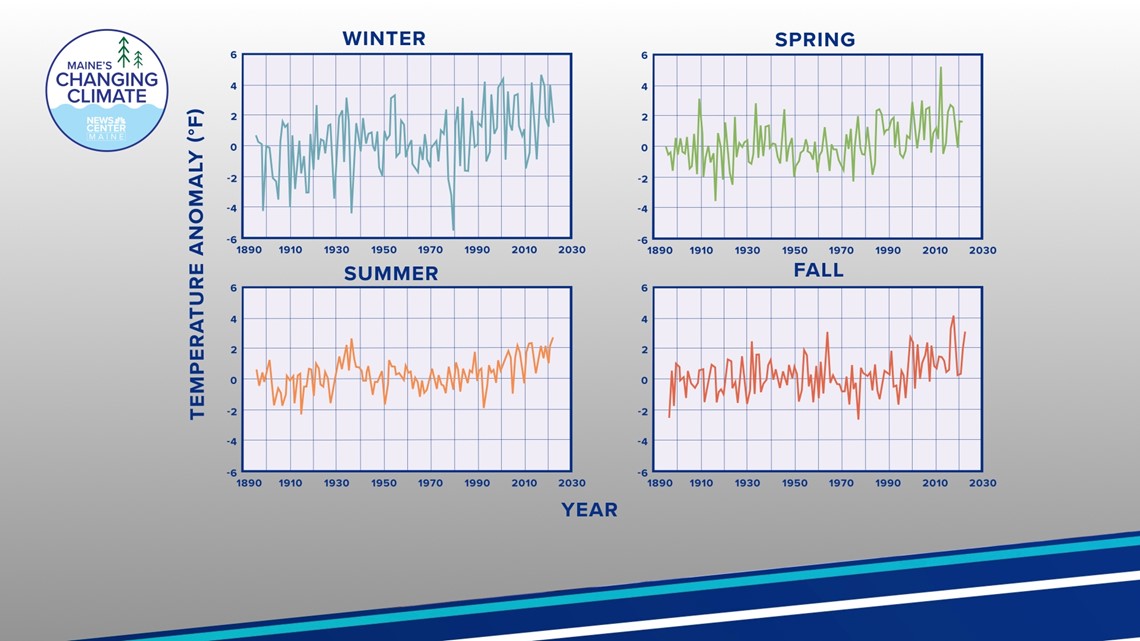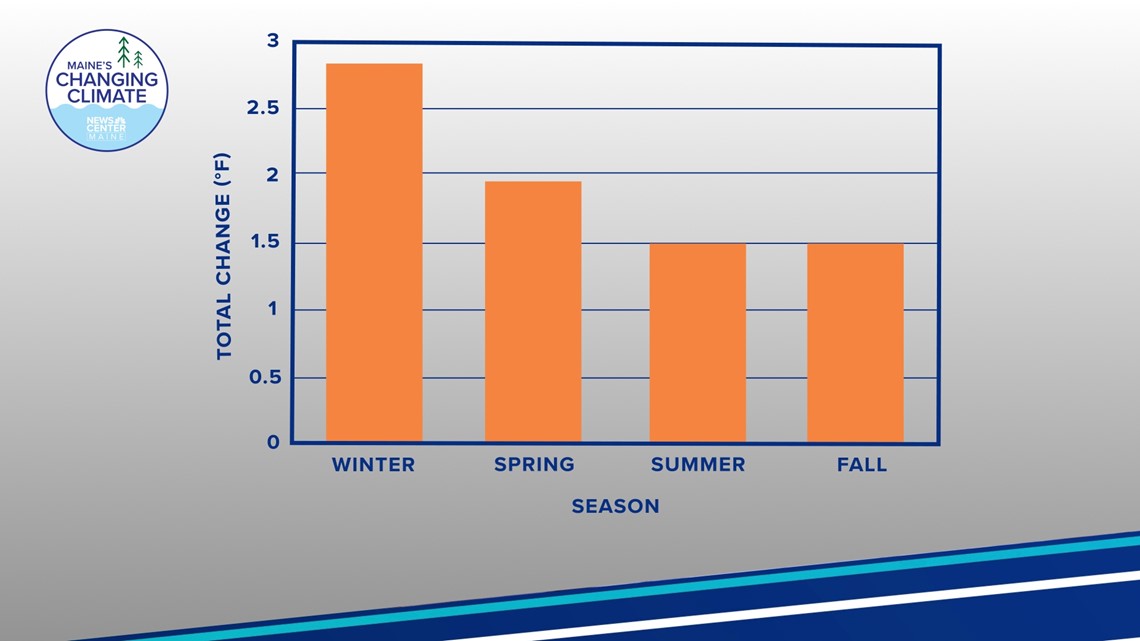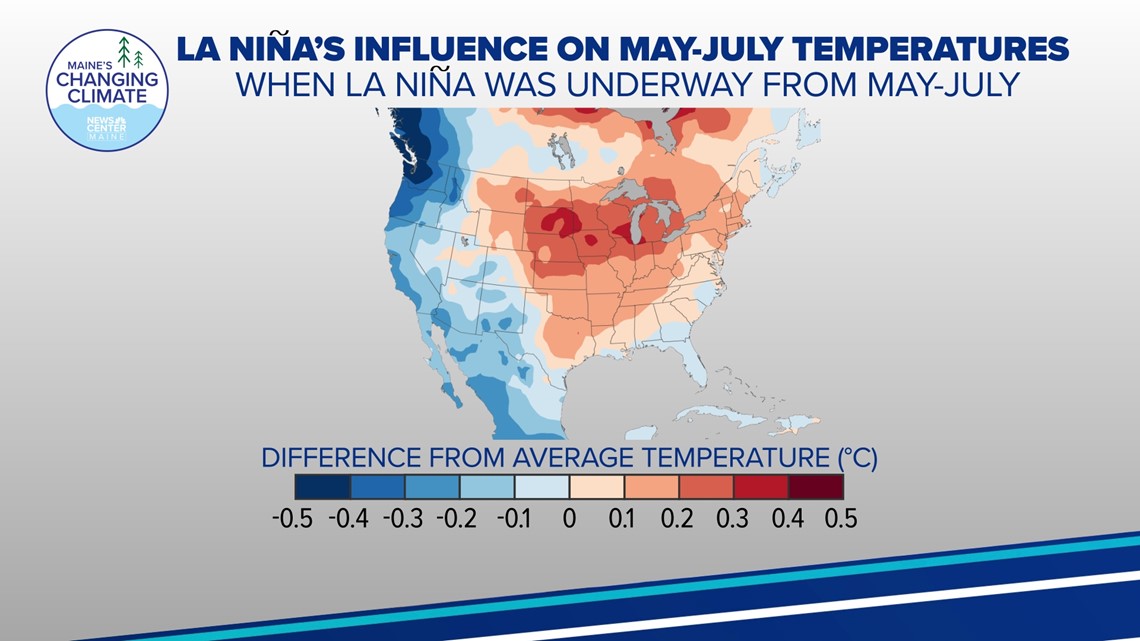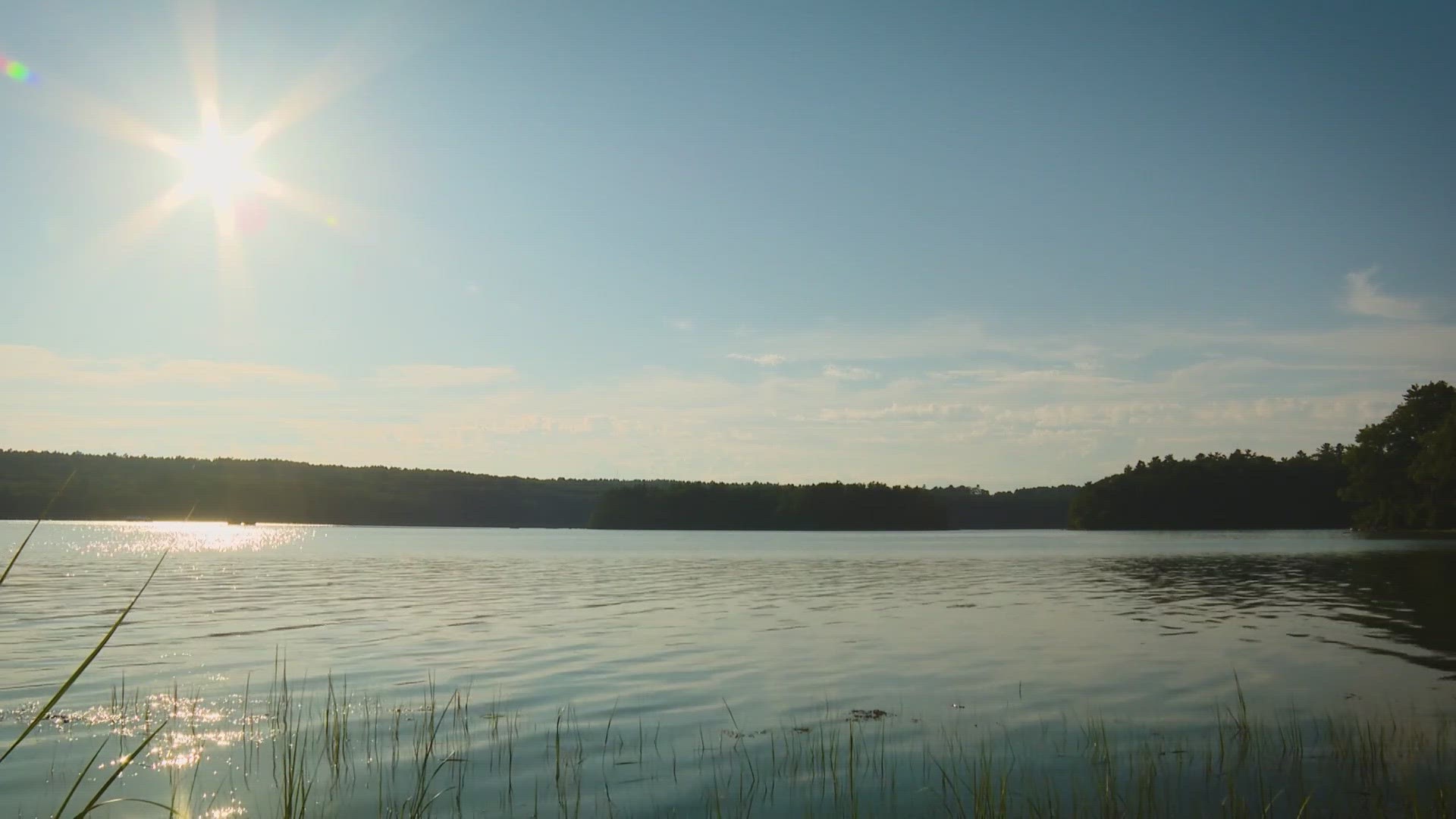PORTLAND, Maine — Signs of a warming climate are noticeable year-round, but the rate of warming is not the same for each season.
It’s easy to think of summer as getting warmer faster than other seasons because of the fact that a 5- to 10-degree anomaly can put you into "scorcher" territory. However, you may be surprised to learn that winter and spring are the fastest-warming seasons across the United States from the late 1800s through today.
According to NOAA, winter temperatures have increased by an average of nearly 3 degrees during that span. Spring has increased by about 2 degrees. Summer and fall increased by 1 degree and 0.5, respectively.




Here in Maine the winter temperature increases have been more drastic than the national average, increasing by over 5 degrees Fahrenheit. That’s a trend for the northern latitudes in general.
Interestingly, most of the increase in average winter temperature has come from warmer overnight lows as opposed to warmer daytime highs.
A perfect example of that happened in Portland this past winter. Maine's largest city recorded its all-time highest low temperature of the winter at 6 degrees, marking one of only three times in recorded history that the city failed to reach zero degrees at any point in the winter.
So, what about spring? It’s the second fastest warming season statistically, but that might be a little bit deceiving in Maine. That’s because meteorological spring begins March 1, which all Mainers know is far from spring around here. Some of the warming that is attributed to spring in the northern latitudes is likely just picking up on the end of winter.
These are all long-track climate trends, though, and it's not necessarily any indication of the late spring and summer to come this year. For that we look more at teleconnections, like our weakening El Nino that is forecast to transition into a La Nina in time for the summer.


Traditionally, that bodes fairly well for New England during the summer. And, hey, it can’t be much worse than last summer, right?

